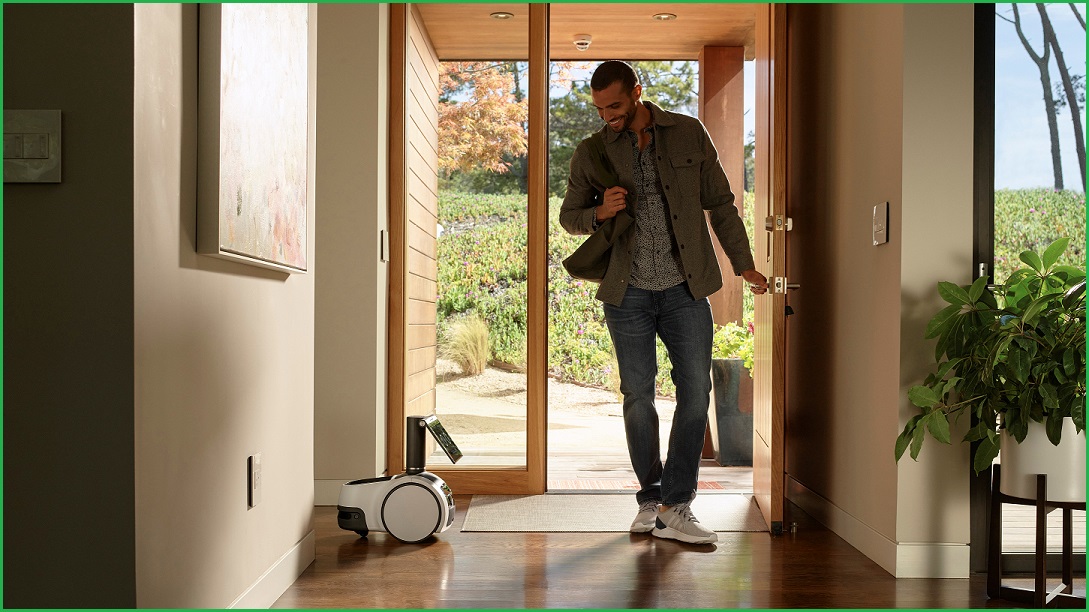Amazon is making a bid to own the home with its new helper robot, Astro.
It comes with an array of features, boosted with subscription services, but potentially lets the retail giant into a wealth of domestic data.
Astro, which takes its name from the dog in the iconic futuristic animated series The Jetsons, is like a cross between the show’s domestic helper and family pet.
“Astro is a new and different kind of robot, one that’s designed to help customers with a range of tasks like home monitoring and keeping in touch with family,” Charlie Tritschler, vice president of products at Amazon, said in a company statement.
To begin with, Amazon is taking a cautious approach to production and now Astro is only available in the US to people by requesting an “invitation” to purchase.
Home robotics combined with monitoring innovation
Astro brings together artificial intelligence, computer vision, sensor technology, and voice and edge computing with some of Amazon’s existing services.
Think of it as a mobile smart speaker meets tablet with internet-connected messaging and communications.
Using Alexa, it can follow you around the home while playing your movies and music and controlling smart home devices.
The built-in periscope camera allows Astro to patrol the home, investigate an event and upload a video report from inside a dwelling using Ring Protect Pro, a new subscription service from Ring, where videos can be viewed from the Ring or Astro app.
With the Alexa Guard service, Amazon says it can detect a smoke alarm, carbon monoxide alarm or glass breaking and send an alert to a phone.
When linked to Alexa Together, a new service designed for people living independently, family members receive alerts that they're up and about.
Just like one of the family
Anticipating the key to Astro’s acceptance is being regarded as a member of the family, it has been designed with its own personality.
Using its digital eyes on its rotating screen, combined with body movements and expressive tones, Astro is designed to evoke emotions like empathy when people use the device.
Amazon has used feedback from hundreds of internal testers and also took inspiration from film, TV, games and animation principles to develop its persona.
Mobility is limited to flat surfaces and while Astro can’t go downstairs, its Intelligent Motion technology uses simultaneous localisation and mapping (SLAM) to understand where it is and navigate around home environments that are prone to change.
Is Astro a stealth surveillance tool?
Using a computer vision feature called visual ID, Astro is designed to ‘recognise’ household members for reminders, calls and even to bring items to them in its cargo bin.
To use this, people need to ‘enrol’ in the facial recognition system so that it recognises them and it also collects a range of data in order to understand the home layout and determine unrecognised people or events in the environment.
Reports with leaked documents have already emerged claiming that Astro tracks people’s behaviour, relies on flawed facial recognition technology, could easily damage its own delicate parts such as the rotating camera, and even falling down stairs.
Amazon has responded in a statement to say that these are old documents and the characterisations of its performance, mast and safety systems are inaccurate.
Anticipating concerns about Astro having unfettered access to people’s homes, areas can be designated as off-limits and it has a microphones/cameras off-button.
It also indicates when recording audio or video is active and being streamed to the cloud, and it has published details about many of the surveillance features online.
No doubt Astro has interesting possibilities, but as a “home robot unlike any other” it may also face people’s reluctance to welcome a home-surveillance device into their lives, even as a smart helper.










